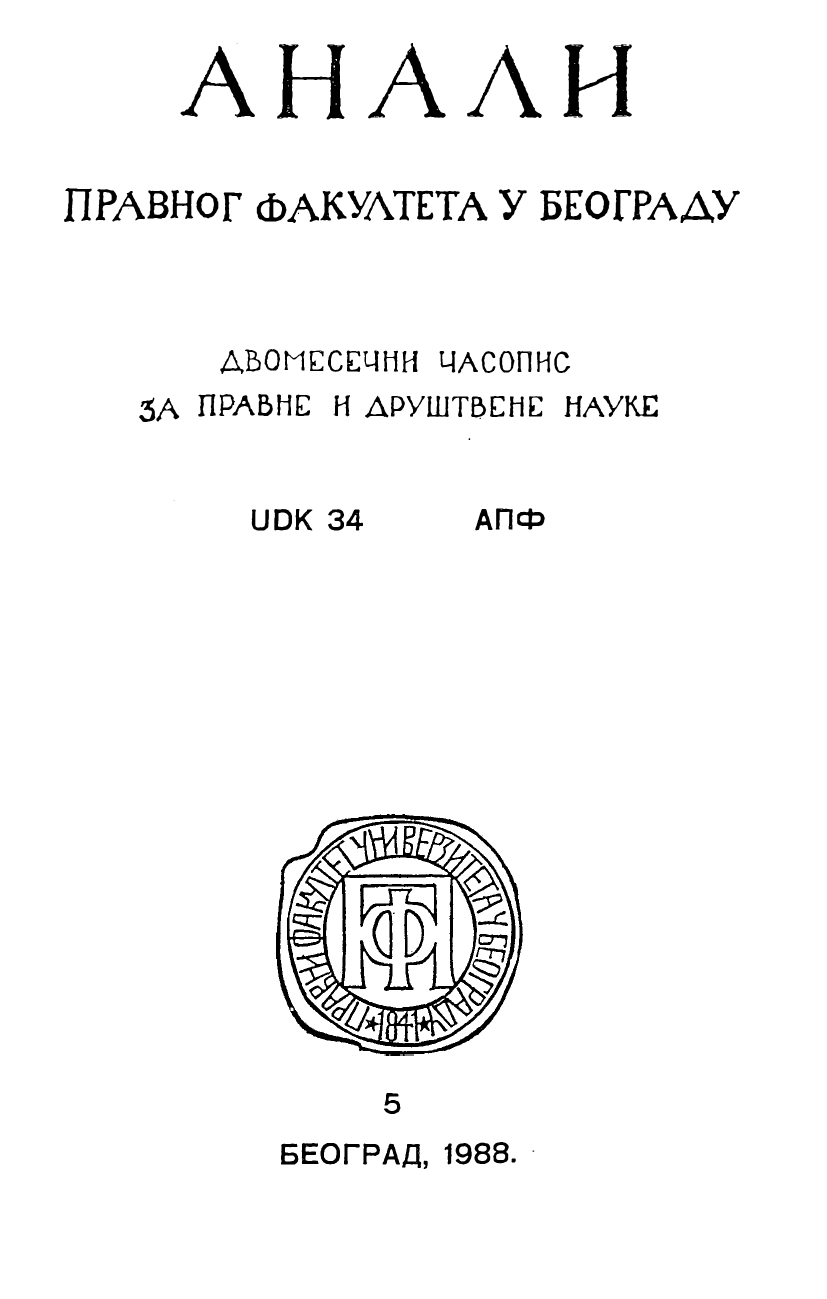ИСТОРИЈСКИ РАЗВОЈ И АКТУЕЛНИ ЗНАЧАЈ СУПРЕМАТИЈЕ YCTABA
HISTORICAL DEVELOPMENT AND PRESENT-DAУ SIGNIFICANCE OF SUPREMACУ OF THE CONSTITUTION
Author(s): Christian StarkContributor(s): Danilo N. Basta (Translator)
Subject(s): Law, Constitution, Jurisprudence, History of Law, Constitutional Law
Published by: Правни факултет Универзитета у Београду
Summary/Abstract: The author analyzes historical development of the principle of supremacy of the constitution (based on common European tradition and finalized in the North American colonies/, its institutional putting into operation predominantly by means of constitutional judiciary and, finally, prerequisites in the very structure of constitution which are necessary for the constitutional-judicial control of constitutionality. Speaking of historical models of supremacy of the constitution, the author emphasizes that only natural law has provided the corresponding instruments, both in terms of substance and form. Leges fundamentales, which are separated from natural law by the contractual basis, become positive law of a higher degree, whose role in political theory and practice of the seventeen century Europe is rather great. This is followed by a review of English constitutional tradition which was decisive for the idea of control of constitutionality (Bonnham’s case) and which gave rise to the first modern constitution (Agreement of the People/. The influence of the school of natural law regarding the state law in Germany is reviewed through particular connecting between leges fundamentales, with the notion of sovereignty, in course of the seventeenth and eighteenth centuries (Grotius, Pufendorf, Wolf). Basic forms of accepting European constitutional tradition are further reviewed in the case of North America, where Declaration of Independence marks the political basis for the supremacy of the constitution, and where constitution as a fundamental law assumes the older idea of supremacy while applying it to the entire basic legal order (division of power and guarantying the rights of citizens/. This part includes the issues of federal state and gradual form of legal order (Stuffentheorie). The author elaborates his principal stanдрoint that supremacy of the constitution is predominatly guaranteed through constitutional-judicial control by dwelling on remaining basic factors such as making it difficult to change a constitution, the right to rebellion and the division of power. He emphasizes that Sieys’ idea on jury constitutionnaire has opened great theoretical and practical legal controversies in this matter. Concluding part is an elaboration of structural characteristics of the constitution which are required for an efficient judicial control of constitutionality in the conditions of strictly conceived supremacy of the constitution. A constitution requires a high degree of clear wording and interpretation by constitutional courts should be self-restraining and logical. However, many issues of constitutional control remain open and, due to its prerogatives while interpreting constitutional provisions, the constitutional court’s role is rather great. The author concludes that an efficient supremacy of the constitution is a legal fact which has to be included into the distribution of state functions between the parliament and the executive power, on the one hand, and judiciary, on the other.
Journal: Анали Правног факултета у Београду
- Issue Year: 36/1988
- Issue No: 5
- Page Range: 497-517
- Page Count: 21
- Language: Serbian

